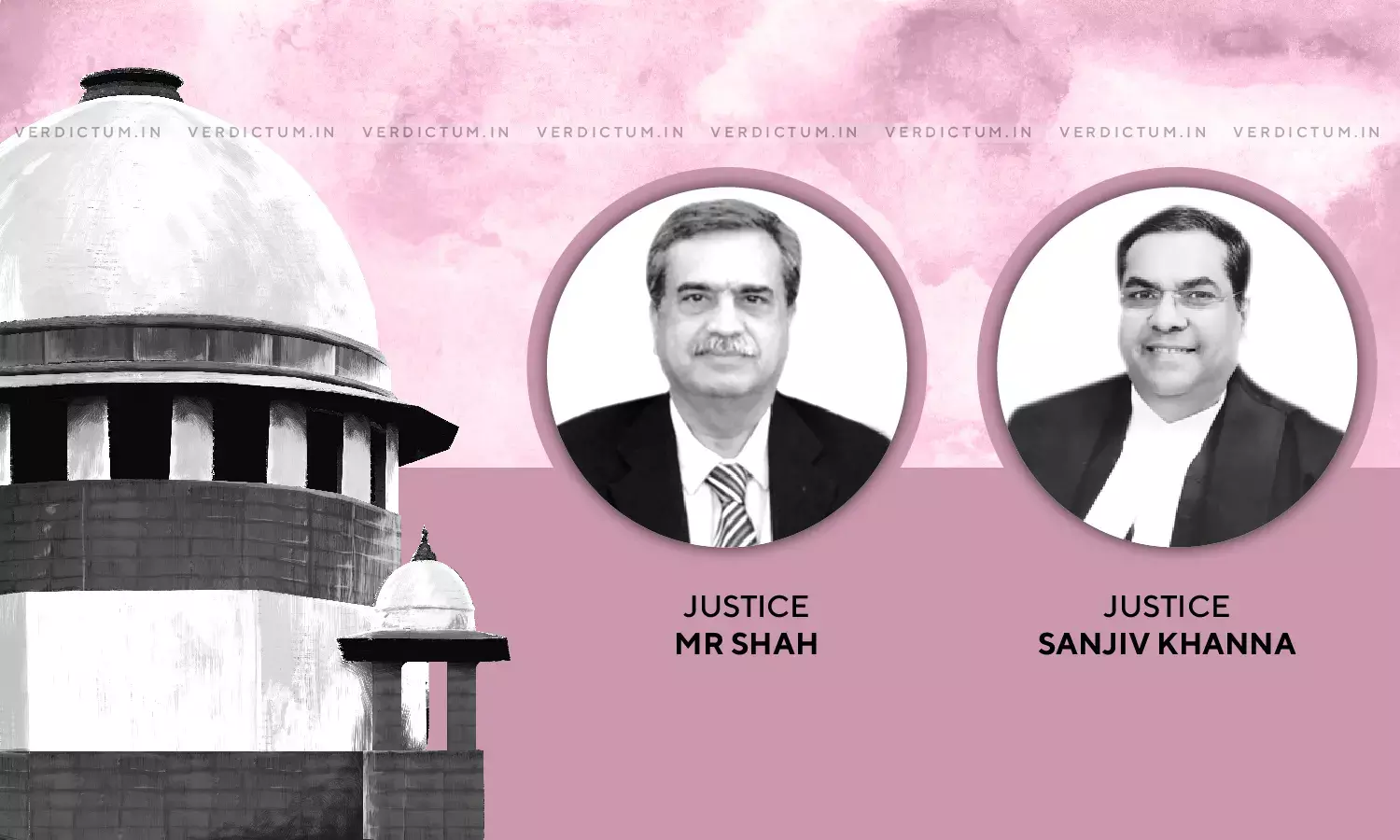High Court Erred In Considering Merits Of Decree In Second Appeal When First Appeal Was Dismissed For Delay- Supreme Court

A two-judge Bench of Justice MR Shah and Justice Sanjiv Khanna has set aside a judgment of the Karnataka High Court since it had considered the second appeal before it as if it is against the order of the Trial Court under Order IX Rule 13 of the CPC when it was actually against the judgment of the First Appellate Court dismissing the first appeal on the ground of limitation. The Defendant had chosen to file a First Appeal under Section 96 of the CPC instead of filing an application under Order IX Rule 13 for setting aside the ex parte decree.
The Court in this context held, "...it appears that the High Court proceeded further with the hearing of the appeal as if the High Court was considering the appeal against the order passed on an application under Order IX Rule 13 CPC, whereas the appeal was against the order and decree passed by the Trial Court, which was affirmed by the First Appellate Court as barred by limitation. Therefore, the procedure adopted by the High Court is unknown to the procedure known to law under the provisions of the CPC."
Senior Advocate, S.N. Bhat appeared for the Respondents while Counsel Sharanagouda Patil appeared for the Appellant before the Apex Court.
In this case, a suit for declaration and possession was filed by the Appellant. The Trial Court decreed the suit ex-parte in favor of the Appellant. The Respondent preferred an appeal against the impugned order of the Trial Court before the First Appellate Court under Section 96 of CPC. Since the application for condonation of delay was withdrawn by the Respondent, the First Appellate Court dismissed the appeal solely on the ground of limitation and did not go into the merits of the case.
Furthermore, the Respondent preferred a second appeal before the Karnataka High Court. The Karnataka High Court allowed the appeal and not only set aside the impugned order by the First Appellate Court but also set aside the impugned ex-parte judgment and decree of the Trial Court and remanded it back for fresh consideration, as if the appeal was an application under Order IX Rule 13 of the Code of Civil Procedure, 1908. The Appellants i.e. the original plaintiffs, preferred an appeal against the impugned judgment of the Karnataka High Court before the Supreme Court.
The Apex Court noted that the impugned judgment and order passed by the High Court quashing and setting aside the judgment and decree passed by the Trial Court and remanding the matter back to the Trial Court was unsustainable.
Further, the Court observed that the challenge was against the impugned order of the First Appellate Court which had dismissed the first appeal as per Section 96 of the CPC due to the absence of any delay condoned application.
"There was no decision by the First Appellate Court on merits. If the High Court was of the opinion that the First Appellate Court erred in not condoning the delay in appeal and dismissing the appeal on the ground of limitation, in that case the High Court could have set aside the order passed by the First Appellate Court dismissing the appeal on the ground of limitation and thereafter remand the matter to the First Appellate Court to decide the appeal on merits," the Bench held.
The Supreme Court thus quashed and set aside the impugned judgment of the High Court and remanded the matter back to the First Appellate Court. The appeal before the First Appellate Court was ordered to be restored. The Respondents were also provided with the liberty to submit an application for the condonation of delay before the First Appellate Court which could be decided on merits.
Click here to read/download the Judgment

